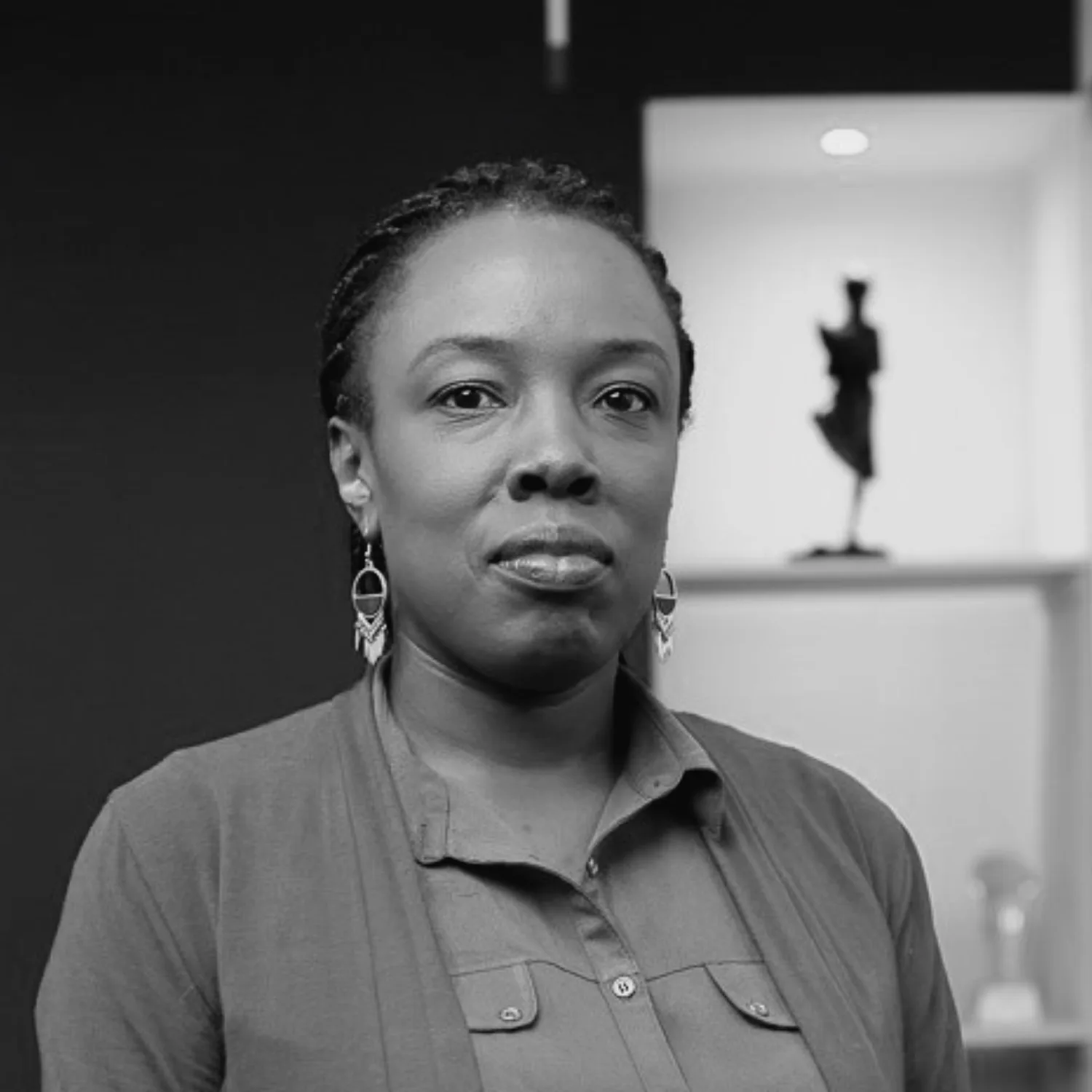Ethical AI needed now more than ever
A development economist with over 12 years of experience in research, advising, and strategy in Africa.

A view on the intersection between AI and economic development
I tested the GPT-4 model not only in terms of the integrity of the information it generated based on my areas of expertise, but also to assess the intersection between AI and African economies. The following analyses of the opportunities and dangers AI will present on the continent are illustrative rather than exhaustive.
Opportunities
Economic Productivity and Job Creation
There are already several use cases where Africa is leveraging AI in agriculture, mining, manufacturing, health, energy, education, and finance. They demonstrate how AI can be leveraged to increase economic productivity, particularly in key sectors such as agriculture, which is the source of livelihood for 55–62% of Africans and constitutes almost a quarter of the continent’s GDP. Generative AI can provide updated data, such as weather prediction and soil and crop monitoring to improve the agricultural productivity of food crops. It can automate irrigation and facilitate new farming techniques including through pest, disease, and weed prediction. Generative AI can present this information in local languages and in a format that is non-technical and accessible to African farmers. Enhanced productivity gains with generative AI can also be made in other sectors such as transport and logistics, financial services, and air travel, among others. Generative AI can increase the demand for labour in certain industries and create new jobs in sectors and firms that are able to leverage it for productivity and profit.
Government Services in Human Capital
More than half of global population growth between 2022 to 2050 is expected to occur in Africa. Generative AI can improve the availability and quality of government services in healthcare and education quickly and in a less capital-intensive manner. AI is already being used in the education sector in Africa for learning analytics and identifying learning difficulties. Generative AI can better equip young Africans for rapidly changing labour markets by providing vetted access to content such as farming, entrepreneurship or financial literacy, and in indigenous languages. It can spot warning signs before dropout and providing personalised learning support. In health, AI is already being used to identify the availability of medical supplies and resistance to medication and treatment. There is a potential to offer new insights and tools to improve clinical decision making, provide predictive analytics for health emergency preparedness, mitigate workforce shortages, and enhance forecasting of disease outbreaks. While AI cannot necessarily address the underinvestment in the health sectors or inefficient and suboptimal allocations to the education sector, it can deepen the reach and quality of both services, and lay the foundations for a healthier, more productive, and better skilled population.
Generative AI isn’t a silver bullet and won’t solve Africa’s structural economic problems.
Public Financial Management and Governance
Fiscal and monetary policy management could benefit from generative AI. African financial sector regulators, revenue authorities, and Ministries of Finance can further leverage generative AI to improve decision accuracy and faster forecasting. Generative AI can help stretched governments to identify and calculate risks, such as those on government financial guarantees. It can help prevent fraud and financial crimes, not only in predicting corruption, but also in stemming the more than $50 billion in illicit financial flows Africa loses annually. Generative AI could also provide more sophisticated options for citizen engagement, business process automation, and analytics for decision-making and policy design.
Generative AI isn’t a silver bullet and won’t solve Africa’s structural economic problems. And to work, such tools must be made affordable, accessible, and useful to different economic players across different sectors and value chains, with local and relevant content and data. This is where the challenges begin.
Risks and dangers
Economic Crimes
Generative AI presents a real and present danger for abuse by nefarious players. Africa is dominated by the informal economy that accounts for about 80 percent of jobs in Africa and provides the perfect cover for economic crimes. This danger is multiplied when paired with cryptocurrency-related crimes, which have been used to fund child pornography, human trafficking, terrorism, and theft. Africa is particularly vulnerable due to generally under-developed policies, legislation, and enforcement capacity to address cybercrimes, let alone criminal activity powered by sophisticated AI.
Attrition in Economic Opportunities
AI-driven job displacement in the African labour market is a concern. Generative AI’s capacity to take on increasingly sophisticated tasks will change the demand for workers, particularly certain lower-skilled ones. The risk of job losses is exacerbated by existing power dynamics and disadvantaged groups will likely suffer more of the negative consequences. AI may also worsen the income divide between rich and low-income countries. While some argue that the potential for new employment opportunities outweigh the potential negative impacts, those effects impacts may aggregate in Africa, where over 640 million people have no access to electricity, let alone the internet and smartphones. And given that Africa has the youngest population, generative AI could exacerbate and accelerate the loss of jobs that are needed for young Africans now more than ever.
Exploitation and Anti-African Bias
It was recently found that one firm underpaid Kenyans to work on ChatGPT-3’s language mode. This type of exploitation is likely to recur. AI’s acknowledged concerns with racial biases do little to help young Africans leverage AI to build products and services for African markets. A lack of Africa-specific data sets is well documented and existing data pools are dominated by non-African sources. These deficits risk generative AI being trained on and entrenching anti-African bias. And existing content is filled with misguided narratives and “facts” about Africa—the wild animals, jungles, war and poverty tropes—creating a flawed content pool. And given Generative AI’s Intellectual Property problem, young African scientists, creators, artists, and thinkers risk having their work exploited, particularly given how weak IP protection and enforcement are on the continent. These IP risks and concerns with data privacy and protection endanger Africans and estrange them from earning incomes and building wealth from their skill and hard work.
Ideas on how to secure ethical AI for economic development
There are already several insightful, credible and pragmatic approaches to consider as the use and presence of AI deepens in Africa. Three priority actions can be taken to increase the development of Ethical AI for economic development:
- Build African AI firms and capabilities: Foreign AI firms and technologies dominate in the region, offering products and solutions that may not be compatible with African tastes and priorities, and relegating Africans to consumer status. Building African firms with generative AI capabilities will create jobs and economic opportunity and deepen the skillsets of Africans who pioneer relevant approaches. These firms can monitor and manage risks and dangers to which Africa is vulnerable and provide solutions that integrate African insights and innovation in local and global AI activities.
- Regulate AI now: Unregulated AI systems expose everyone to problematic and exploitative uses. Italy banned ChatGPT and regulators from Germany, France and Ireland are considering similar steps. African governments should develop rules for generative AI Content and the firms that have generative AI capabilities. Regulation ought to address the interface with the geopolitics and concentration of power in the AI space. African governments should develop policies anchored in ethical principles and create a body or bodies with clear supervisory oversight, responsibility, and the power to enforce regulation in local jurisdictions.
- Center ethics and integrate African experts: The conversation on Ethical AI was first brought to the public eye by individuals such as Timnit Gebru, who is Eritrean. She has articulated troubling technical and socioeconomic issues in AI development, from racial and gender biases in facial recognition systems to labour exploitation and the lack of diversity in the field. Sadly, the conversation on ethics in AI is still dominated by the concerns and priorities of rich economies, side-lining the concerns, inputs, and ideas of African experts. This exclusion is unnecessary in the 21st century. It can be deliberately addressed by firms and governments with aggregate power in the field by making consistent and authentic efforts to center ethics and diverse viewpoints, including those from Africa.
The view, opinion, and proposal expressed in this essay is of the author and does not necessarily reflect the official policy or position of any other entity or organization, including Microsoft and OpenAI. The author is solely responsible for the accuracy and originality of the information and arguments presented in their essay. The author’s participation in the AI Anthology was voluntary and no incentives or compensation was provided.
Were, A. (2023, June 19). Ethical AI Needed Now More Than Ever. In: Eric Horvitz (ed.), AI Anthology. https://unlocked.microsoft.com/ai-anthology/anzetse-were
Anzetse Were
Anzetse Were is a development economist with over 12 years of experience in economic research, advising, and strategy in Africa. She is sought after as an economic advisor and strategist and provides insight on how to navigate the complex realities of African economies. She is a keynote speaker and widely authored with articles and reports in international media outlets, business magazines, and development periodicals. Anzetse has an MA in Economics from the University of Sydney (Australia), and a bachelor’s degree from Brown University (USA).






